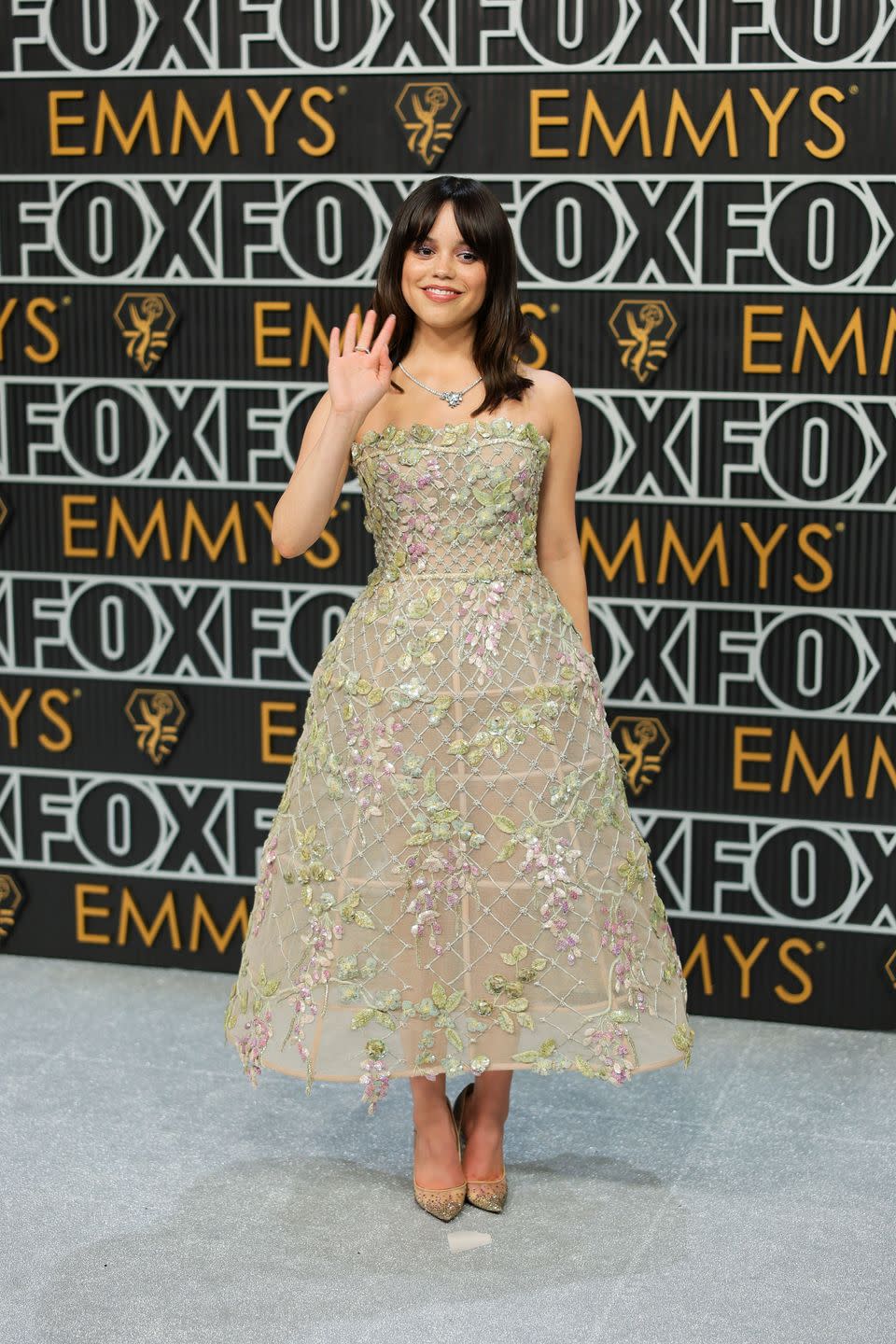Jenna Ortega: Facts, Controversy & Deepfake Concerns - What You Need To Know
Is fame a gilded cage, where privacy becomes a luxury and every digital footprint can be exploited? The recent scrutiny surrounding Jenna Ortega highlights the brutal paradox of celebrity in the digital age, where talent and artistry are often overshadowed by relentless online attention and the ever-present threat of digital exploitation.
The actress, celebrated for her roles in projects like "Wednesday" and "Scream," has found herself at the center of a complex and disturbing confluence of events. From the controversy surrounding her film "Miller's Girl" to the surfacing of deepfake images and the violation of her privacy, Ortega's experience underscores the vulnerability of public figures to both artistic scrutiny and malicious online behavior. The incidents raise important questions about consent, the ethics of AI-generated content, and the responsibility of social media platforms to protect their users.
| Full Name | Jenna Marie Ortega |
| Date of Birth | September 27, 2002 |
| Place of Birth | Palm Desert, California, USA |
| Nationality | American |
| Ethnicity | Mexican and Puerto Rican descent |
| Parents | Father (Mexican descent), Mother (Mexican and Puerto Rican descent) |
| Siblings | Fourth of six siblings |
| Occupation | Actress |
| Notable Works | "Wednesday", "Scream" (series), "You" (TV series), "Miller's Girl" |
| Height | 5' 1" (1.55 m) |
| Social Media Presence | Active on Instagram and Twitter |
| Education | Not publicly disclosed |
| Controversies | Deepfake images, "Miller's Girl" (controversial subject matter) |
| Reference | IMDB |
The controversy surrounding "Miller's Girl," a film that delves into the complexities of an inappropriate relationship between a student and a teacher, further complicates the narrative. While the film's release has sparked debate about its subject matter, it also highlights the actress's willingness to tackle challenging roles. This, however, puts the actress more in the spotlight.
- Elena Moussa Height Career Facts About Greg Gutfelds Wife
- Blonde Male Actors The Ultimate Guide To Hollywoods Hottest Trends
Further, the distribution of non-consensual, AI-generated images has exposed the dark underbelly of the internet. Reports that circulated on social media platforms, notably Facebook and Instagram, which allowed advertisements featuring deepfake nudes of Ortega, generated using AI, are a stark reminder of the power and potential misuse of technology. This raises serious ethical concerns, particularly regarding the impact on young women. These images, often indistinguishable from real photographs, were used to promote apps designed to create explicit content, highlighting the commercial incentives driving this type of malicious behavior.
These events have sparked a debate about the role of social media platforms and the need for stricter regulations. The fact that these images were allowed to circulate, even briefly, underscores the challenges platforms face in moderating content and protecting their users from harm. The speed and ease with which such images can be generated and disseminated is a significant threat to both individuals and the public at large.
Ortega has previously addressed the issue of online harassment and exploitation. She revealed that she received unsolicited explicit pictures of herself generated by AI and pictures of naked men on Twitter when she was only fourteen years old. These experiences shed light on the pervasive and damaging nature of online harassment, which can have long-lasting psychological effects. The normalization of such behavior online is a serious concern. Her experiences are shared by many others, underscoring the need for increased awareness and protection.
- Anthony Kiedis Relationships Dating Life In 2024 Whats New
- G Herbo Fathers Passing Family And Career Highlights
The pervasiveness of deepfakes and AI-generated content poses a significant challenge to digital security and privacy. The ability to create realistic and potentially harmful content with relative ease undermines trust, making it difficult to distinguish between what is real and what is fabricated. This is particularly concerning when it comes to images of a sexual nature. The technology can be used to create compromising content, which can then be used for harassment, blackmail, or revenge, which presents a major challenge for law enforcement and cybersecurity experts.
Ortega's situation highlights the importance of media literacy and critical thinking. It is more important than ever for individuals to be able to identify and evaluate information critically. This includes being able to distinguish between real and fake images and being aware of the potential for manipulation.
The incidents surrounding Ortega also bring up the responsibility of media outlets in reporting on these issues. The balance must be struck between reporting on events and protecting the privacy and dignity of the individuals involved. This is crucial in order to prevent further harm. The media plays a significant role in shaping public perceptions and can also contribute to the problem by sensationalizing or inappropriately reporting on these incidents.
The responses of social media platforms to this situation are crucial. Meta, the parent company of Facebook and Instagram, has taken some steps to address the issue, including suspending the app's page. However, more action is needed. This can include tighter content moderation, improved tools for detecting and removing harmful content, and collaboration with law enforcement agencies to identify and prosecute those responsible for creating and distributing malicious content.
Furthermore, it is important to provide support to the victims of such attacks. This may include providing legal resources, mental health services, and advocacy efforts to raise awareness and prevent further harm. A coordinated response from various stakeholders is essential to combat the growing threat of online exploitation and protect vulnerable individuals.
The film "Miller's Girl" and the incidents surrounding the use of AI-generated images demonstrate the importance of creating safe spaces in the film industry and other entertainment fields. This includes safeguarding against exploitation of individuals, particularly young actors. This extends to ensuring that actors, especially young and rising stars, are protected from exploitation of their image and the use of their likeness in non-consensual ways. This requires clear ethical guidelines and regulations.
The rise of AI-generated content and deepfakes demands a comprehensive approach to privacy protection. This will involve legislative measures, technological advancements, and enhanced digital hygiene practices. Legislation should be enacted to criminalize the creation and distribution of non-consensual AI-generated content, including strict penalties. Technology companies should develop and implement advanced detection tools. There is a great need for the users to take responsibility to remain safe.
The challenges that celebrities like Jenna Ortega face provide an opportunity to re-evaluate the relationship between fame, technology, and privacy. It's a call to action for a more responsible and ethical digital environment.
The conversation about these issues extends far beyond the specific case of Jenna Ortega. It's about creating a world where digital boundaries are respected, consent is paramount, and individuals are protected from the malicious use of technology.
This is not just a problem for celebrities. Anyone with an online presence is vulnerable. The incidents with Jenna Ortega are an example of a larger crisis. It's a reminder that the technology is constantly evolving, and it is essential to remain vigilant and proactive in protecting digital privacy.
In conclusion, the issues that have affected Jenna Ortega offer a crucial lesson. They underscore the pressing need for a safer, more respectful digital world. It is important to be proactive in protecting digital privacy and challenging malicious use of technology. This is the only way to make the digital world a place of safety for all.



Detail Author:
- Name : Emory Hodkiewicz
- Username : xschultz
- Email : tiara18@gmail.com
- Birthdate : 2005-12-07
- Address : 782 Anna View North Vitoside, WI 99490
- Phone : +1 (414) 336-2073
- Company : Weber, Bruen and Bergnaum
- Job : Physical Scientist
- Bio : Sapiente expedita reprehenderit earum perspiciatis est atque voluptas. Eos velit sit excepturi officia. Temporibus rem ex porro.
Socials
tiktok:
- url : https://tiktok.com/@gay_quigley
- username : gay_quigley
- bio : Reprehenderit corrupti et explicabo perspiciatis sed.
- followers : 4277
- following : 2811
twitter:
- url : https://twitter.com/gayquigley
- username : gayquigley
- bio : Perspiciatis repellendus nihil enim ullam quis incidunt. Earum quibusdam ut velit eligendi illo. Consequuntur blanditiis harum ut modi velit reiciendis.
- followers : 2962
- following : 1665